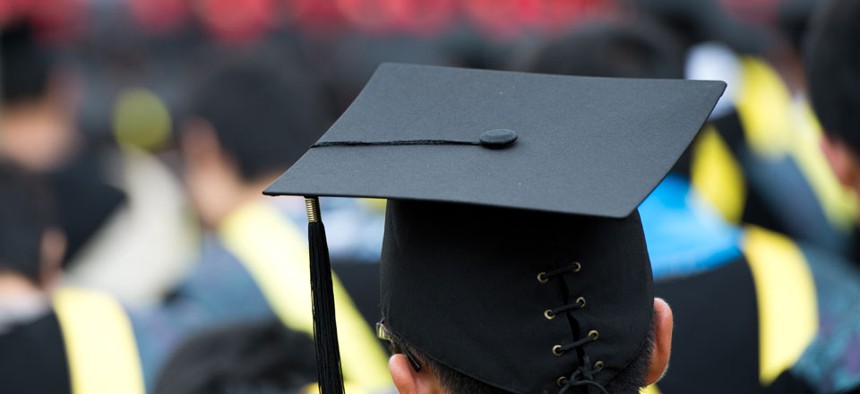
hxdbzxy/Shutterstock.com
China Is Setting up Covert Spy Networks in US and Australian Universities
The ever-rising droves of Chinese people studying abroad is generally considered an all-around win, especially for China's Communist Party.
The ever-rising droves of Chinese people studying abroad is generally considered an all-around win. It’s good for Chinese students, who get a coveted credential, as well as for host universities and local communities, which benefit from the spending boost.
It’s also good, it turns out, for China’s Communist Party. The Chinese government is rolling out a sprawling spy network inside Australia’s top universities, reports John Garnaut, a veteran journalist covering China, in the Sydney Morning Herald .
This news comes on the heels of allegations made in February by a dissident Chinese professor about the visiting scholars China dispatches to US universities like Harvard and Stanford. “Every year among those top universities there are some visiting scholars, and among them I can definitely say there are some people who are actually spies,” Xia Yeliang, a former Peking University economics professor, who now works at the Cato Institute in Washington, told Reuters .
According to Garnaut’s report, students are the more likely spies, however. These agents report on the activities of other Chinese citizens—including both professors and Australia’s 150,000-plus (pdf) population of students from the Chinese mainland—helping Chinese intelligence officials police their overseas nationals for openness to ideas that run counter to Party ideology.
For example, one lecturer at a top Australian school said China’s main spy agency interrogated him repeatedly about comments he made at a seminar on democracy. He told the Herald that the agency had shown him the report by a woman who had informed on him.
Australia is now ramping up its counter-intelligence program. But one reason there are so many Chinese spies in Australian universities might be that the schools haven’t created welcoming communities for visiting international students, said the Herald report.
Both the US and Australia have benefited from the appeal of their universities to Chinese students. The US remains the top destination for Chinese students hoping to study overseas, though it’s become less popular recently, while the UK is in second place. Last year, Chinese students contributed $7.2 billion to the US economy . As for Australia, one-quarter of its international students are from China . That’s even though Australia is one of the world’s most expensive places to study :

Reprinted with permission from Quartz . The original story can be found here .
( Image via hxdbzxy / Shutterstock.com )






